Guan Yin’s Renunciation – Avalokiteshvara Hears the Cries of the World: Story of Miao Shan’s, her Heroic Last Life
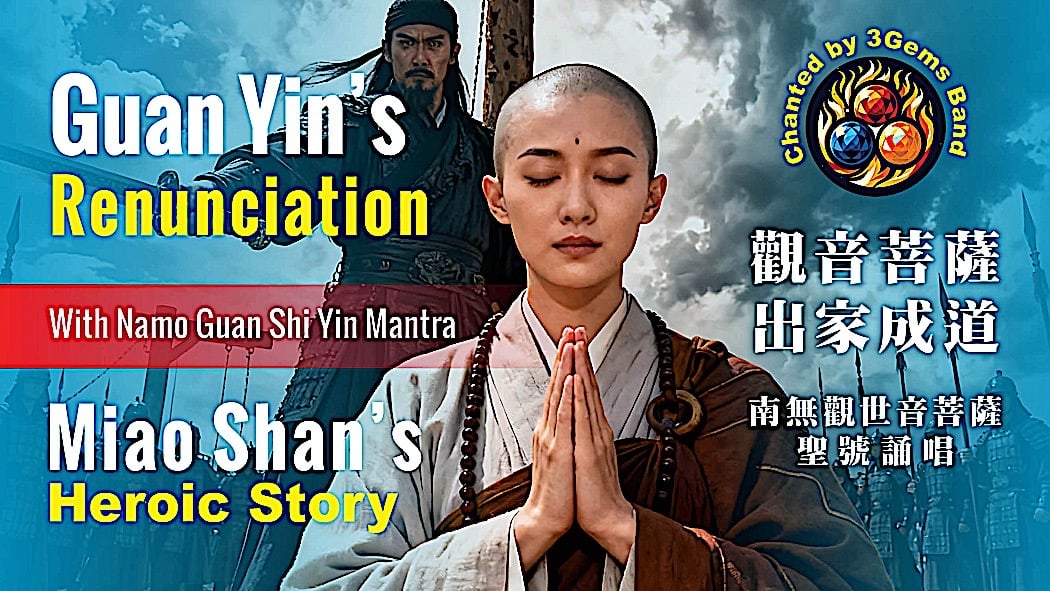
Who was Guān-shì-yīn Púsà, or Avalokiteśvara, before she became a Bodhisattva? What is her tragic, yet heroic and inspiring story? Why did her own father persecute her in her last life as a human? Why is she called the “Great Mercy” and the “One Who Hears the Cries of the World?” Come along with us now as we meet Princess Miao Shan, the last incarnation of Guān-shì-yīn or Avalokiteśvara before she arose as Bodhisattva of countless forms, who tirelessly helps all suffering beings.
Video with visual story (or text below):
Avalokiteshvara Guan Yin in Sutra
In the Heart Sutra, we see the depth of Guānyīn or Avalokiteśvara’s wisdom, the Perfection of Wisdom. In this Sutra, he — or she — ends with the provocative and vastly profound statement “Form is Emptiness; Emptiness is Form.” It can take a lifetime to truly understand the depth of Prajna Paramita, and it is also an interesting precursor to the Universal Gate Sutra where we learn that Guānyīn, or Avalokiteśvara, arises in countless forms, even animal, ghost, or deity.
In another Sutra, 108 forms are mentioned. Male. Female. Deity. Wrathful and ferocious. A 1000 armed form with 11 faces. Countless forms. In Sanskrit he is known as Avalokiteśvara. In Chinese she is known as Guān-shì-yīn. In Japan, he is known as Kannon. These names in English translate as “Bodhisattva Who Hears the Cries of Suffering in the World.”
Story of Princess Miao Shan
This name arises from the story of Princess Miao Shan, which was Avalokiteśvara or Guānyīn’s final life as a human. After her final Enlightenment, as she rose up through the heavens to the great Pureland of Sukhavati, she heard the cries of beings behind her. The suffering moved her so deeply she stopped at the threshold between realms.
The Goddess of Mercy remained in our Samsaric Worlds, becoming protector of all six realms, helping all beings, one by one, endlessly through time. Her Bodhisattva vow is famous. She vowed to remain in Samsara until every single being has attained freedom from suffering. Today, her followers make the same vow, called the Bodhisattva vow. The practice of Avalokiteśvara, or Guānyīn, almost entirely revolves around this unbreakable, sacred vow.
Turning Back to Save All Beings: the Vow
This event, of “turning back to save all beings” is celebrated on her Enlightenment Day, which is honored on the 19th day of the 6th lunar month each year.
Throughout all the cycles of existence, which are as endless as Samsara, there has never been a more profound vow. From where did such strength arise? It arose, through the heroic, unshakable resolve of Princess Miao Shan. Her story is told in the famous “Precious Scroll of Fragrant Mountain”.
But, who was this person, who later arose as the compassionate Bodhisattva who heard our cries on her way to the heavenly realms? What led her to renounce worldly human life? Why is she known as the “taking away fear Bodhisattva?”
Buddha’s Previous Lives
All Bodhisattvas begin as samsaric beings, as humans or worldly beings such as ourselves. Shakyamuni Buddha relates the stories of his countless previous lives in the many Jataka Tales. In one life he was a monkey king. In another, he was a person so moved by compassion he fed his own body to starving tigers. In his final life, as we know, he was Gautama Buddha, a prince.
Last Life of Guanyin — as Heroic Mioa Shan
Who, then, was the Goddess of Mercy Guānyīn? In her very last life, the life where she formally renounced the worldly and became a nun, she was born a princess to a ruthless and tyrannical father. Her name, as told in the Precious Scroll of Fragrant Mountain, was Miao Shan.
We will recognize the future Guānyīn in her human story. She was moved by the suffering of all beings. Her heroism and story of moving sacrifice is both touching and — slightly gruesome. Be forewarned. Her father was pure and simply a mass-murdering monster.
This, then, is the story of her renunciation, which was in her last human life. We celebrate this event on the 19th day of the 9th lunar month each year. We think of her sacrifice, her suffering and her noble mission to save all beings. To honor her compassion, on this day we make pure, vegetarian offerings, including donations to help people and beings in need. We live our own lives with compassion, helping others. We renew our Bodhisattva vow — to help all beings and the ultimate goal to become Enlightened for the benefit of all these beings. In other words, we follow her example.
Miao Shan was born a princess of a war-like king Miaozhuang Wang. His Kingdom Fucheng was small and short-lived, and he sustained it with war and blood. He fought for 25 years to establish the kingdom. According to the scroll, this blood-thirsty king remained without a male heir after 50 years of trying.
According to the beautiful retelling by Edward T.C. Werner, The king asked “fifty Buddhist priests to pray for seven days and seven nights in order that the King might obtain a son.” Due to his history of murder and killing, his karma was too heavy for him to have a son, who might carry on his murderous legacy.
Instead, the king had three daughters. This devious king devised the plan to marry them off to three suitable princes who would allow him to rule by proxy. Two of his daughters were found “appropriate” husbands.
But, his third daughter, Miao Shan, was known for her virtue and her devout Buddhist faith, and had no interest in becoming a political ploy. She was always seen out in the community, helping neighbours, tending the sick, a literal goddess of mercy to the people of the small kingdom. She spent her life helping those that suffered due to her father’s brutality.
Being a morally perfect girl, she declined to marry a prince for politics. She said to her father:
“I do not wish to marry. I wish to attain to perfection and to Buddhahood. Then, I promise, that I will not be ungrateful to you.”
Outraged, the king shouted, “Wretch of a daughter! You think you can teach me, the king of State, and ruler of so great a people!” His pride arose in demonic rage.
The king ranted until finally his daughter, afraid the people would suffer, said: “I will consent only to marriage if you, my father, can remove the three sufferings from our people.”
When the king asked what she meant, she explained: “The First Misfortune was the suffering endured by people as they aged; the Second Misfortune was the suffering caused by illness; and the Third Misfortune was the suffering caused by death.”
Of course, the king realized not only was this impossible, but he, himself, was the cause of two of these sufferings.
The princess, who knew her father’s hard heart, said, “I can marry a physician who can heal humanity of all its ills; of cold, heat, lust, old age and all infirmity.”
Then, she said something that truly enraged her father, “And I wish to equalize all classes, without distinction between rich and poor.”
The king’s rage was nearly murderous. “Wicked imbecile!” he shouted. “How dare you make diabolical suggestions in my presence!”
He called an officer of the palace and told him to evict the evil daughter. “This wicked nun dishonors me! Take her royal robes, and drive her out to perish in the cold!”
But, Miao Shan actually fell to the ground, prostrating, and thanked the King for his blessing. She gladly left the palace and retired to a hermit lifestyle, with the “moon as a companion, and the wind as my friend.”
The king had her locked in an outer garden in the cold. Daily the court ladies and her sisters and the King and Queen came to try to talk some sense into her.
Miao Shan finally told them to stop coming to her, and asked to be sent to the Nunnery of the White Bird. The King disgusted with such an unfaithful daughter, agreed to send her away. But, he vindictively instructed the nuns to give her the hardest work in the nunnery in hopes Miao Shan would relent and finally agree to do as she was told.
Reluctantly, the abbess put the happy new renunciate in charge of the hardest chores in the kitchen, and tasked her with servicing all the other nuns.
Miao Shan was overjoyed, rather than dismayed. She knelt to the abbess and thanked her.
She had finally formally renounced the worldly. This was the event celebrated on her renunciation day.
In the lovely story of the Precious Scroll of Fragrant Mountain, as an overworked kitchen servant, she received heavenly help to reward her virtue: The Spirit of the North Star sent a “dragon to dig her a well near the kitchen, a tiger to bring her firewood, birds to collect vegetables, and all the spirits of Heaven to help her in her duties. Because of this divine help, she was able to also practice meditation, prayers and mantras, and gave herself up without disturbance to the pursuit of perfection.
The abbess reported all this to the king, who was further enraged. In a fit of burning rage, he ordered his chief of the guard to surround the Nunnery of the White Bird and burn it to the ground, together with the nuns.
As the nunnery burned, the five hundred nuns, in terror, blamed the disaster on Miao Shan.
“I alone am the cause of your destruction” she said, and she calmly knelt and prayed to heaven for relief. The Heavens responded with sudden great clouds and a dramatic, terrifying storm. There was no doubt the heavens were displeased. The torrential showers instantly put out the fires.
Foiled by the heavens, the evil king ordered his daughter to be brought in chains, and executed.
Again, the heavens intervened. The executioners sword was broken in two when it struck her neck. When they tried to impale her with a spear, the weapon shattered. Then, the king, ignoring the signs of displeasure from the heavens, ordered her to be strangled, but as she died, a tiger appeared and carried her lifeless body away into a pine forest.
Finally released from suffering, she rises to the heavens, to become the goddess of mercy. But she hears the cries of those of us left behind in samsara. Instead of rising on to the Purelands, she turns back and vows to help all beings in Samsara.
She resolved to manifest in the countless forms we know today, to rescue beings, one-by-one from Samsara, never tiring, ever heroic. She can be sometimes loving and motherly, as we might think of her as White-Robed Guan Yin. She can manifest for us with a 1000 arms and 11 faces to help all of us at once. He can appear as a gentle male Bodhisattva, holding out the wish-granting mani jewel to us. He can appear in ferocious form, as Hayagriva. However he, or she, appears, the Bodhisattva helps us.
She is known not only for “hearing our cries” but also responding with help. She is known as the “remover of fears.” And as the rescuer from “ten dangers.”
All of these are the Bodhisattva. We honor her grand sacrifice as Miao Shan, on her renunciation day, normally celebrated on the 19th day of the 9th month.
We can grow closer to her and honor her by upholding her name, in any of her forms or languages. Symbolic of this is her Namo mantra praise, although upholding her name means more than this. To uphold her name means to vow to act as a Bodhisattva ourselves — to help others, and to strive to attain Enlightenment ourselves for the benefit of others.
Her offering is our generosity towards others. Every time we help any other being, this act from the heart is her best offering. Supporting the Sangha and the Dharma are also important offerings.
Her Namo praise in Sanskrit would be Namo Avalokiteśvara Bodhisattvaya.
Or, we chant the Námó-guān-shì-yīn púsà praise.
In the embedded video, 3 Gems Band chants the Námó-guān-shì-yīn púsà praise beautifully with the Dharma Drum.
2 thoughts on “Guan Yin’s Renunciation – Avalokiteshvara Hears the Cries of the World: Story of Miao Shan’s, her Heroic Last Life”
Leave a Comment
More articles by this author

LUNAR NEW YEAR AND NEW MOON PRACTICE: 5 Buddha Families Puja Daśa Puṇyasāgarāḥ 10 Auspicious Mantras in Sanskrit for FULL MOONs

Video: Vajrakilaya — Vajrasattva’s Angry Face of Great Love protecting you from the 5 poisons and 8 Dangers
Search
Latest Features
Please support the "Spread the Dharma" mission as one of our heroic Dharma Supporting Members, or with a one-time donation.
Please Help Support the “Spread the Dharma” Mission!

Be a part of the noble mission as a supporting member or a patron, or a volunteer contributor of content.
The power of Dharma to help sentient beings, in part, lies in ensuring access to Buddha’s precious Dharma — the mission of Buddha Weekly. We can’t do it without you!
A non-profit association since 2007, Buddha Weekly published many feature articles, videos, and, podcasts. Please consider supporting the mission to preserve and “Spread the Dharma." Your support as either a patron or a supporting member helps defray the high costs of producing quality Dharma content. Thank you! Learn more here, or become one of our super karma heroes on Patreon.
Lee Kane
Author | Buddha Weekly
Lee Kane is the editor of Buddha Weekly, since 2007. His main focuses as a writer are mindfulness techniques, meditation, Dharma and Sutra commentaries, Buddhist practices, international perspectives and traditions, Vajrayana, Mahayana, Zen. He also covers various events.
Lee also contributes as a writer to various other online magazines and blogs.








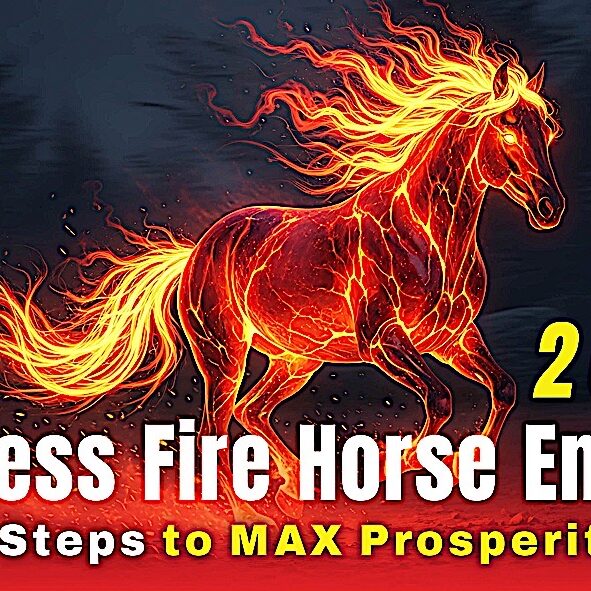
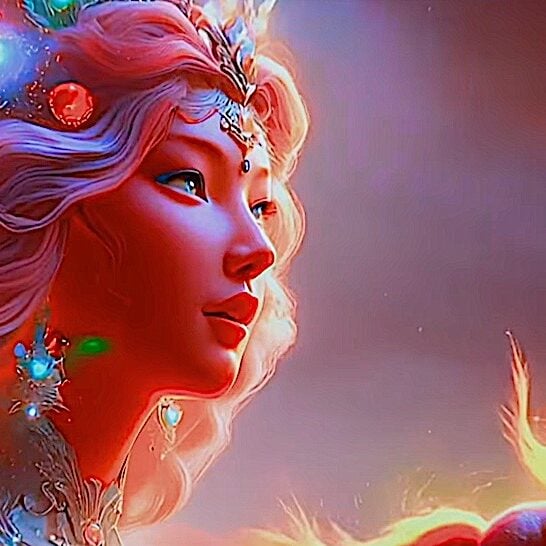
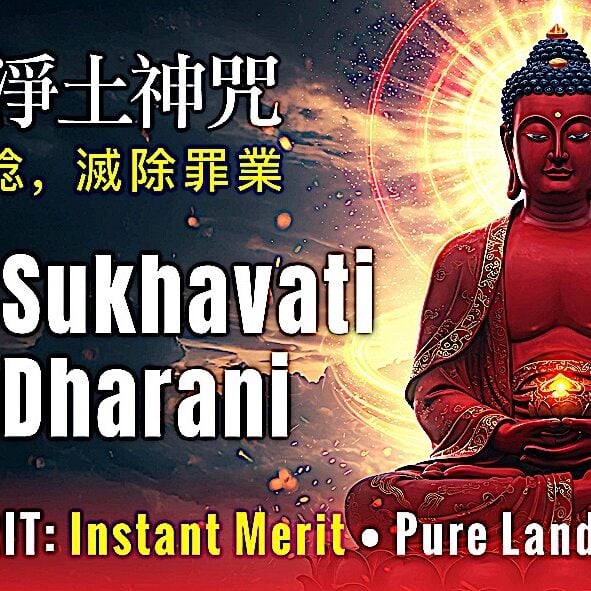
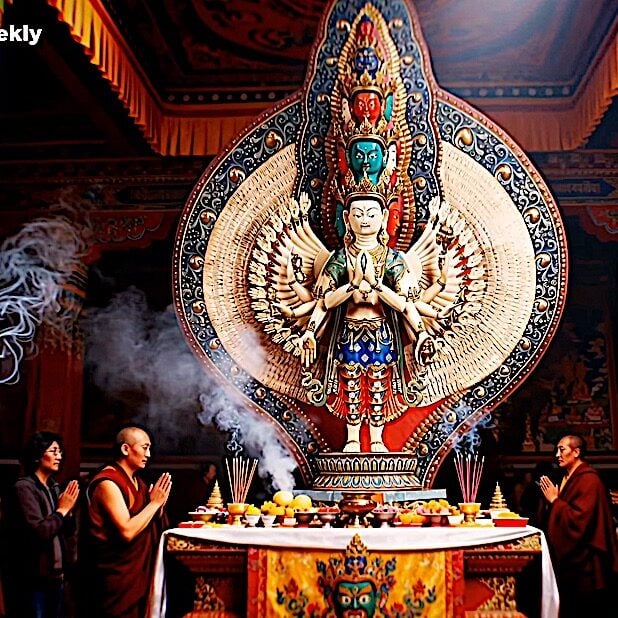
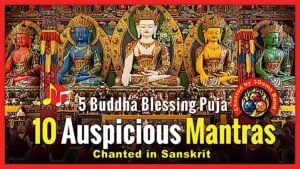

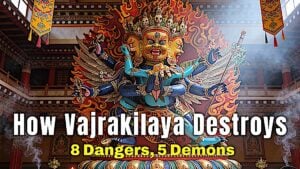
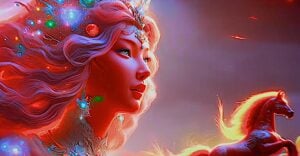

Inspiring story that inspires me tot take the bodhisattva vows again.
♥♥♥ Always good to do, it’s very purifying to renew vows. I do it as often as I can, along with the five Vows to the Five Buddha Families practice https://www.youtube.com/watch?v=FmU5Lz1Cbjc&t ♥♥♥